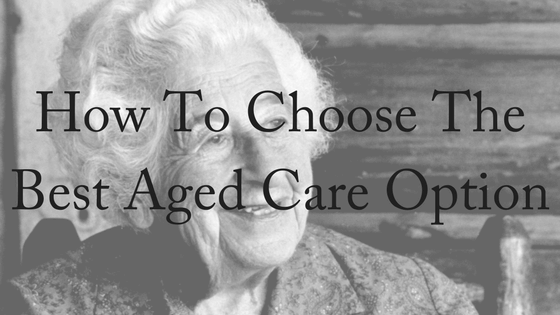Australia’s ageing population means that the pressure to care for an increasingly frail generation is mounting on nursing homes and their workers. The government is encouraging Australians to stay at home for as long as possible as they age, but this means that those who enter nursing homes are sicker and more frail than ever before.
A senior adviser with the Combined Pensioners Superannuants Association states: “We have seen a decline in the number of registered nurses working in residential aged care, and we are seeing a commensurate increase in our personal care workers.” There are no mandated staff-to-residents ratios in nursing homes, placing pressure on workers who are caring for a large number of residents. Where registered nurses are university-trained, personal care workers are usually low-paid with little training.
The recent deaths of two dementia patients while under the care of nursing homes has increased scrutiny on the industry. One patient died after falling into a fountain, and another died from dehydration, malnutrition and pneumonia. The latter patient’s husband contends that his wife died from neglect. Both nursing homes implicated in the two deaths have retained full accreditation by the regulator. In the case of the patient who died from dehydration and malnutrition, despite a complaint by her husband and an internal investigation, the Aged Care Quality Agency gave the home a rating of 100%.
Following coronial investigations into both deaths, both nursing homes were asked to improve their policies and procedures. These stories are disturbing, and it highlights the need to seek specialist advice before arranging for the care of elderly relatives. Should they be in formal care or will there be a family arrangement? How will bills be paid? Is the person in charge of the care of the elderly person trustworthy? How will social security entitlements be affected?
Nursing Homes vs In Home Care
Recent studies have shown that older people wish to stay at home. Around 75% of people surveyed by a Government report have stated they wish to age at home, rather than move into aged care or a nursing home. And while this choice saves money for both individuals and government funding, those with health issues may not be able to stay at home.
In a residential facility for older people, care is provided by the nurses present. Emergency care is not provided in residential facilities, but otherwise around the clock care is provided. This care is best suited to those who are only dependent on care for certain needs. However, there are cases in where suitable care is not provided due to the increase in patients, the lack of nurses or the misunderstanding of certain people’s cases.
Home care may also prove to be suitable to an older person as they have a nurse who visits the person in their home, knows their needs and is able to care for them as required. Home care can range from visits once a week or to be present for times such as baths and meals. As the health of an elderly person decreases, they may need different forms of home care. However, discussing the person’s circumstances with an at-home carer will allow you an understanding on what exactly is best for the older person.
However, residential care does allow for a new social setting. Most aged care facilities and nursing homes provide times for games such as chess or cards and meals can be a community event. However, the excursions may not offer a huge amount of flexibility due to the amount of people that need to be cared for. Meanwhile, the benefits of home care allow for the older person to remain close to family and friends. If the person wishes to stay home, they may be more able to stay in close contact with familiar family members and friends.
Emotional well-being is a huge challenge for those moving into old-care homes. Older people who don’t suffer from cognitive decline may find the change easy, but older people who suffer from diseases such as dementia or Alzheimer’s may find the change very uncomfortable. The process can be upsetting and is not suited to all. Staying at home can be less traumatic.
 Before you make your decision on what care you would prefer for you or someone else, you should consider financial arrangements and what you believe would be best for well-being and mental circumstances.
Before you make your decision on what care you would prefer for you or someone else, you should consider financial arrangements and what you believe would be best for well-being and mental circumstances.
Care arrangements for older people through family members can be a great way to maintain family closeness and ensure the care is appropriate in all the circumstances.
Sometimes a family member who put themselves out to undertake such care is inappropriately vilified for doing the wrong thing. For the sake of there being no misunderstanding among the family as to the motivation of a family member in caring for an older person and indeed for the older person in choosing to live in one household as apposed to another, it is our experience, that it is best for there to be open discussion (if that is at all possible). We can facilitate that open discussion. Secondly, it is our experience, that it is best to document care arrangements. Once again, so that there is no misunderstandings.
We are able to assist people in advising on care agreements with aged care facilities and with also the calculation of bonds.
As older people age, it is important to examine how best to live a comfortable and healthy life.
If you are navigating this complex area of the law, please contact us today. we offer a FREE, 10-minute phone consultation and we’d love to help.

